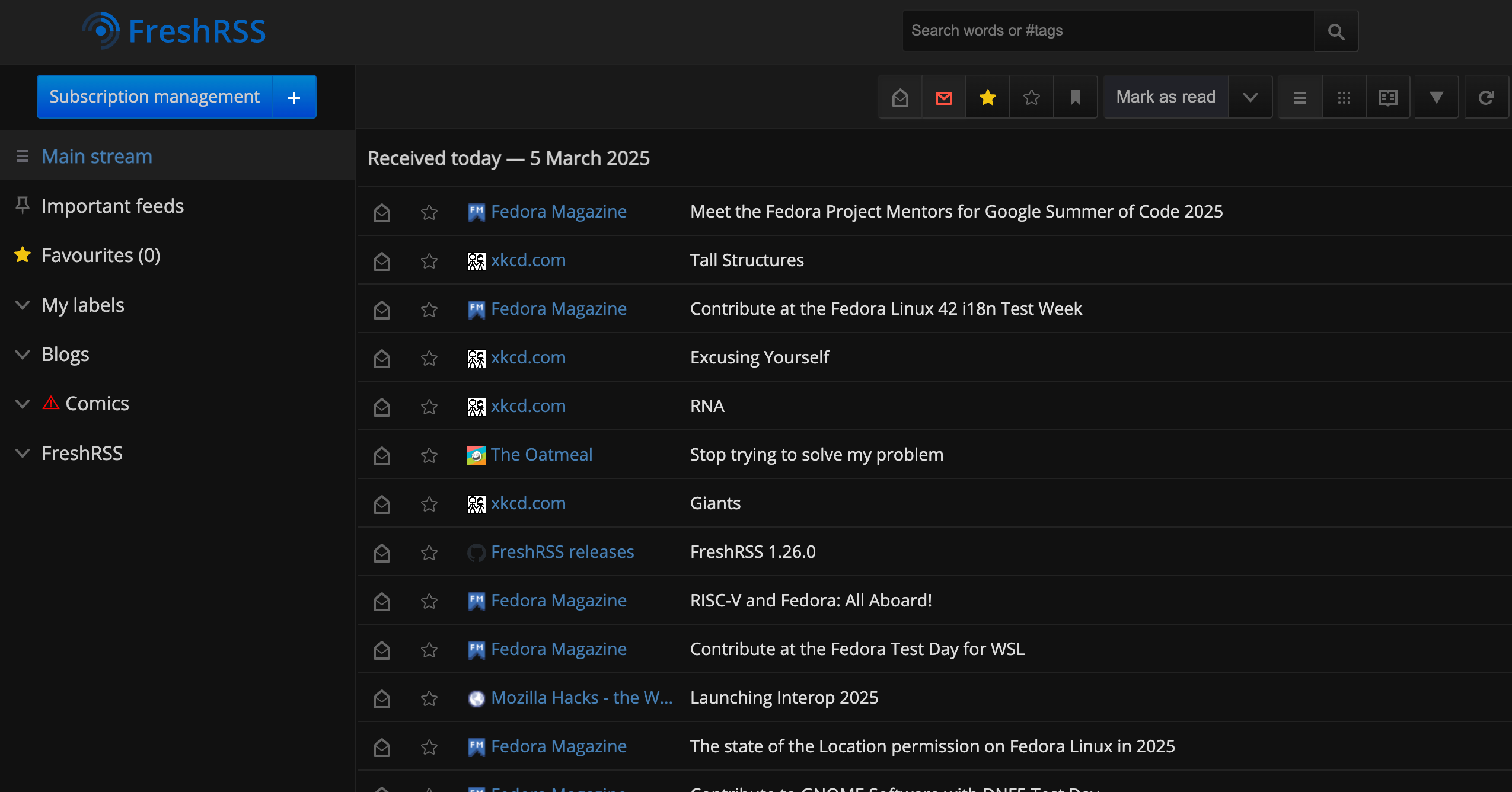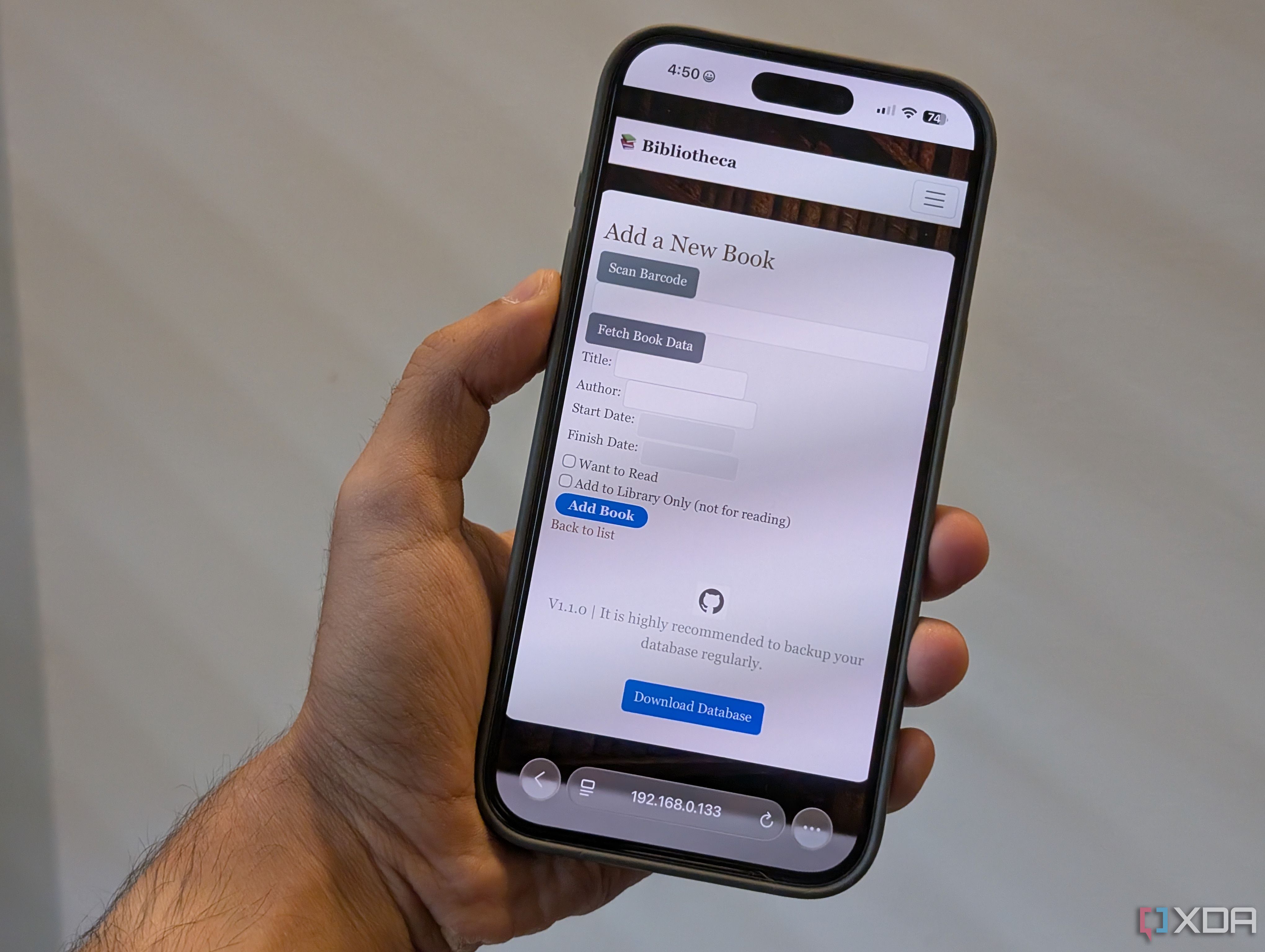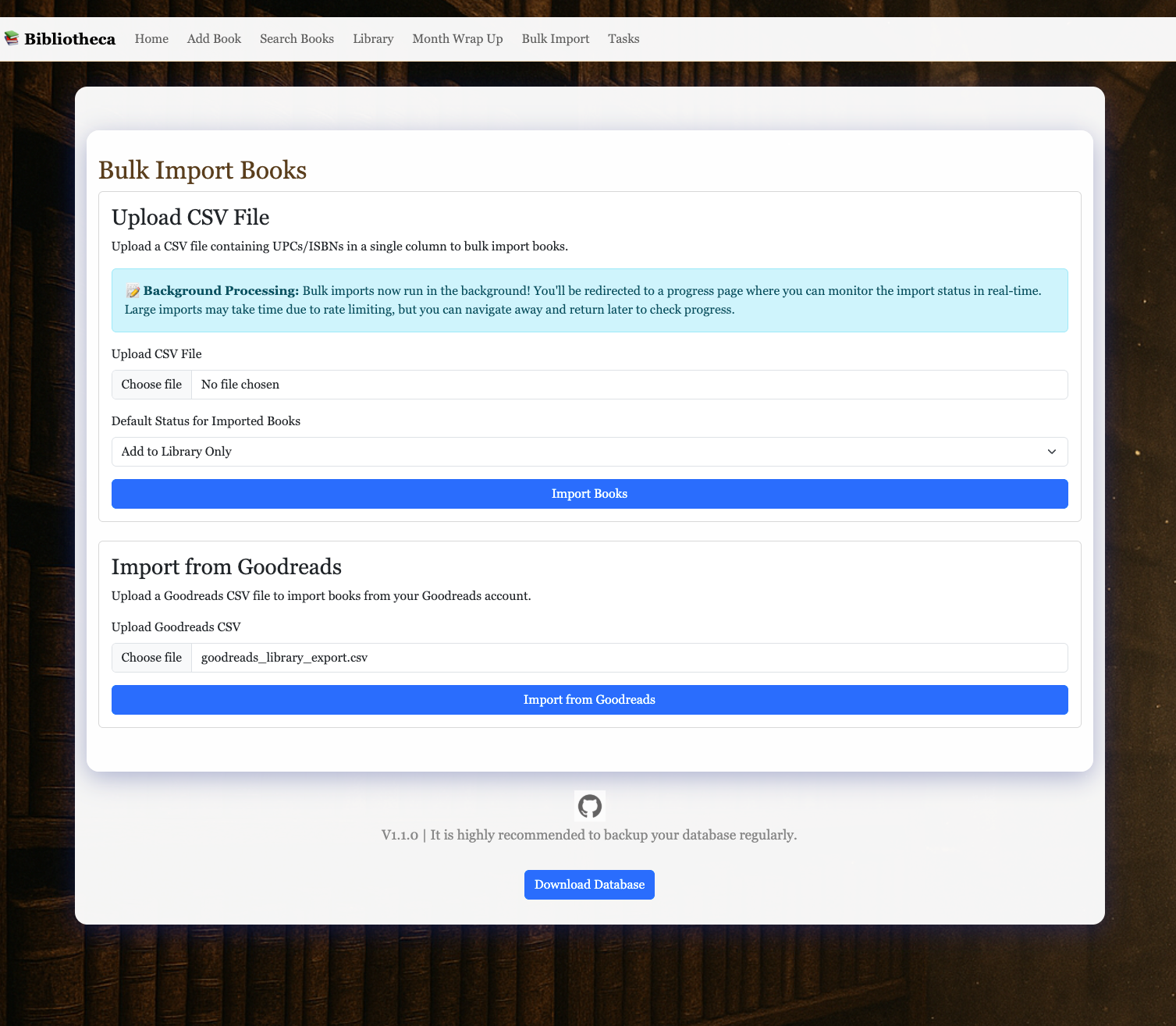As an avid reader and book collector, quantifying my collection is essential to me. And as the biggest reading-tracking platform around, Goodreads has been my go-to for about a decade. But it's clear that the platform is far from perfect. The site has barely evolved in a decade, still has a clunky interface despite overhauls, and packs a recommendation engine that barely understands my taste in books. Amazon’s ownership further adds to the feeling that the sole purpose here is to ensure that my reading data is used for everything but to improve the reading experience.
I wanted something cleaner and faster. While many self-hosted tools are available to host your library and serve it to e-readers, I wanted a tool that effectively maintained a log and my reading history — something that didn’t shove ads and promotions in my face. It turns out that Bibliotheca is exactly that tool, and it has given me full control over my reading life.

I self-hosted my own RSS reader to keep up with the news
Self-hosting FreshRSS gives you speed, privacy, and customization in one package
A clean, fast book tracker that just works
Easy to install, even easier to live with
Bibliotheca is a minimalist self-hosted book tracker that doesn’t try to be a social network. It doesn’t chase engagement, comments, or flood you with ratings. Lacking any social connections altogether, Bibliotheca is engineered just for you and your books. The software stack based on Flask and SQLite is lightweight and fast. The layout is simple, yet elegant. And tasks like adding a book are incredibly easy with its use of the universally accepted ISBN system. Bibliotheca integrates with Google Books and OpenLibrary to pull accurate and clean data about books. In fact, the feature set is delightfully limited and precise. You can add books, log your reading history, mark a book’s reading status, and that’s it. It just works.
When setting up a new self-hosted service, ease of installation is an important criterion for me. I’m not a professional developer and shouldn’t have to spend too much time in the weeds. As it turns out, installing Bibliotheca on my Synology NAS using Docker turned out to be one of the most satisfying parts of this experiment. Since I already had Docker and Portainer running on my NAS, I simply took the developer’s Docker Compose file straight from the GitHub page. The clean syntax made it a breeze to add in a fresh stack, hit deploy, and get the app running.
I mapped the necessary volumes so that all my data stayed persistent between updates. I also set up port forwarding to ensure I could access the app remotely. Of course, you can set up a reverse proxy for easier access. The easy installation process reminded me how frictionless self-hosting can be with good documentation.
Where Goodreads stumbles, Bibliotheca wins
Why Goodreads feels outdated and out of touch with real readers

Goodreads might’ve been started with good intentions, but as it stands today, it's evident that the service clearly isn’t designed for readers first. The treasure trove of information about book trends, reading habits, and the kinds of titles people finish versus abandon is tucked away behind ads, promos, and a cluttered interface. In fact, even the recommendation engine leans towards books with popular appeal versus titles I’d enjoy.
All that is to say that Bibliotheca takes a polar opposite approach. The interface is refreshingly stripped down. There are no reviews, no ads, no recommendations. The home page is just a simple library view that shows you what you’re reading, what you want to read, and finished books. If you log your reading every day, the app will also show you your reading streak, but it's not compulsory. The simplicity of the interface makes it easy to get in and get out without getting caught up in leaving reviews, comments, or stars. I’m just reading and tracking it for myself.
Bibliotheca also wins out in speed. Goodreads feels like it's stuck back in 2011, both visually and functionally. Pages take a while to load, and the mobile app is sluggish with an outdated UI. The social features feel outdated. You can follow authors but rarely get a notification about new releases. Spend enough time on the app, and you start suspecting the authenticity of the reviews, too. Suffice it to say that the app doesn’t offer much value as a reader.
If you’ve been a long-time user of Goodreads, like me, you’ll like how easy it is to import your Goodreads library into the app. Just use the CSV export option under your Goodreads library, tap bulk import, and add it to Bibliotheca. It's as simple as that. Elsewhere, Bibliotheca offers a cheeky social function called Month Wrap Up. The app generates an image with cover thumbnails of all the books you’ve read that month. It makes for a convenient way to flex your monthly reading on social media.
Why self-hosting Bibliotheca works for self-hosters like me
A quiet, no-frills book tracker that respects your space and data

Look, not everyone is going to rush out to replace Goodreads. For some people, the self-hosting aspect of the service is important. Be it shared reading lists, commenting on reviews, or spotting what friends are reading next. But for me, none of those use cases are critical. I don’t need a feed or reading challenges. If you’re like me and just need a clean and quiet interface to track what you’ve been reading, what you’ve read, and what you want to read, Bibliotheca is a solid choice.
Moreover, like all self-hosted services, it solves the problem of controlling your data. You own your data and decide how it is stored. If something breaks, you can just roll back to the previous version. There’s no lock-in, no paywall, and no sudden changes to the interface to push engagement.
Bibliotheca might be light on features, but it nails this balance. It doesn’t overwhelm you with options or distractions. The book view is clean and lets you sort by title, author, or date. You can even backup your entire library with one click. Of course, it being an open-source app means you can tweak the source code as much as you want. But you don’t need to. It works just fine out of the box.
The perfect Goodreads alternative for NAS users and book lovers
For avid readers running a NAS, Bibliotheca is a no-brainer. The lightweight app gives you everything you need to track your reading habits without any of the bloat.
If you’re trying to make Goodreads work for your needs, you might find Bibliotheca to be the perfect alternative for your reading habits.
.png)










 English (US) ·
English (US) ·